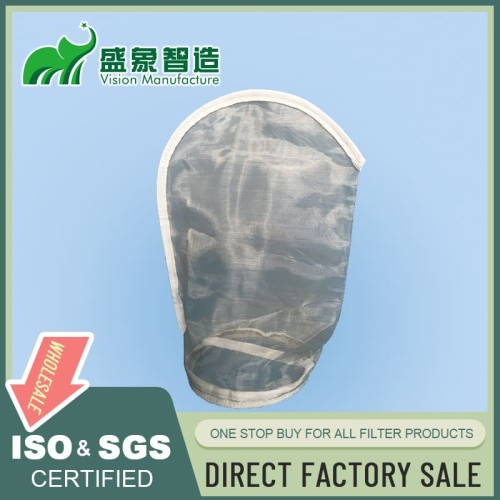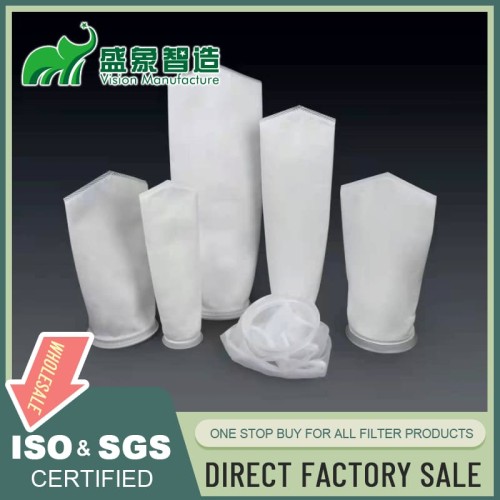
Polyester vs. Polypropylene Water Filters: Unveiling the Distinctions
Table of Contents
- Introduction
- Polyester Water Filters
- Polypropylene Water Filters
- Key Differences in Material Composition
- Filtration Efficiency
- Chemical Resistance and Durability
- Cost Considerations
- Applications in Residential and Industrial Settings
- Environmental Impact
- Consumer Considerations: Choosing the Right Filter
- Real-World Examples and Case Studies
- Myths and Misconceptions
- Future Trends in Water Filtration
- Conclusion
- FAQs (Frequently Asked Questions)
Introduction
In the ever-evolving landscape of water filtration, the choice between polyester and polypropylene water filters sparks a myriad of questions. Both materials play crucial roles in ensuring clean and safe water, but understanding their differences is essential for making informed decisions. Let's dive into the nuances that set polyester and polypropylene water filters apart.
Polyester Water Filters
Polyester, a synthetic polymer known for its durability, is a popular choice in water filtration. These filters boast a composition that enhances their filtration efficiency, making them effective in capturing particles of various sizes. Polyester water filters find applications in both residential and industrial settings, where longevity and reliability are paramount.
Polypropylene Water Filters
On the other hand, polypropylene, a lightweight synthetic polymer, offers its own set of advantages in water filtration. The material's unique composition, often in the form of melt-blown or spun-bonded fibers, provides excellent sediment filtration capabilities. Polypropylene water filters are widely utilized in residential scenarios, particularly for removing larger particles and sediment from water.
Key Differences in Material Composition
The distinction between polyester and polypropylene starts with their material composition. Polyester, derived from petrochemicals, exhibits robustness and resistance to abrasion. In contrast, polypropylene, with a different chemical makeup, is lighter and excels in chemical resistance. These variances influence how each material performs in water filtration.
Filtration Efficiency
When it comes to filtration efficiency, polyester and polypropylene differ in their capabilities. Polyester filters excel at capturing both large and small particles, making them suitable for a broad range of applications. Polypropylene filters, while effective in sediment removal, may not match polyester in fine particle filtration.
Chemical Resistance and Durability
The response of polyester and polypropylene to chemicals and their overall durability is a critical consideration. Polyester demonstrates resistance to chemicals and moisture, contributing to its suitability for diverse water conditions. Polypropylene, with its chemical resistance, is also durable, although it may not match the robustness of polyester in certain industrial settings.
Cost Considerations
Cost is a significant factor for consumers, and the choice between polyester and polypropylene filters may impact the budget. While polyester filters may come with a slightly higher initial cost, their long-term durability often justifies the investment. Polypropylene filters, being more cost-effective, appeal to those prioritizing budget-friendly options.
Applications in Residential and Industrial Settings
Understanding where each type of filter shines is crucial. Polyester water filters find their place in residential settings where fine particle removal is essential. Polypropylene filters, with their sediment filtration capabilities, are often preferred in residential scenarios. In industrial settings, the choice depends on factors like flow rate, particle size, and the specific requirements of the application.
Environmental Impact
For environmentally conscious consumers, considering the ecological footprint of water filters is vital. Both polyester and polypropylene offer recyclability, contributing to sustainability efforts. Exploring the environmental impact of each material aids in making choices aligned with eco-friendly practices.
Consumer Considerations: Choosing the Right Filter
As consumers navigate the choices between polyester and polypropylene water filters, several factors should guide their decisions. Customization options, filter specifications, and the specific needs of their water source all play a role. A thoughtful approach ensures the selected filter aligns with the consumer's expectations.
Real-World Examples and Case Studies
The real-world application of polyester and polypropylene filters speaks volumes. Success stories in residential and industrial settings showcase the effectiveness of each material. Understanding these instances provides valuable insights into how the choice of filter material can impact water quality.
Myths and Misconceptions
In the realm of water filtration, myths and misconceptions abound. Addressing common misunderstandings about polyester and polypropylene filters is crucial for making informed decisions. Dispelling these myths ensures consumers have accurate information at their disposal.
Future Trends in Water Filtration
The landscape of water filtration is dynamic, with continuous innovations shaping the industry. Exploring emerging technologies and future trends offers a glimpse into what lies ahead for polyester and polypropylene filters. Staying informed positions consumers to embrace the latest advancements in water filtration.
Conclusion
In the dichotomy between polyester and polypropylene water filters, both materials emerge as stalwarts in ensuring clean water. The choice depends on specific needs, preferences, and the nuances of the water source. As we unravel the distinctions, remember that selecting the right filter contributes to the longevity and effectiveness of your water filtration system.
FAQs (Frequently Asked Questions)
1. Can I use polyester water filters in my home?
Polyester water filters are versatile and suitable for residential use, particularly when fine particle removal is a priority. Their durability and efficiency make them a reliable choice for maintaining water quality in homes.
2. Are polypropylene filters suitable for removing sediment in residential settings?
Yes, polypropylene filters are well-suited for residential applications, especially in scenarios where the primary concern is removing larger particles and sediment from water. They provide effective sediment filtration for improved water clarity.
3. What factors should I consider when choosing between polyester and polypropylene filters?
Consider the specific needs of your water source, the level of filtration required, and your budget. Polyester filters excel in fine particle removal and durability, while polypropylene filters are cost-effective and efficient in sediment filtration.
4. Are polyester and polypropylene filters environmentally friendly?
Both polyester and polypropylene filters are recyclable, contributing to environmental sustainability. Proper disposal and recycling of used filters help reduce the overall impact on the environment.
5. How often should I replace polyester and polypropylene water filters?
The replacement frequency depends on factors such as water quality, usage, and the specific conditions of your water source. Regular inspection and following manufacturer recommendations will guide you in determining the optimal replacement schedule.
In conclusion, the choice between polyester and polypropylene water filters is a nuanced decision that hinges on various factors. Whether you prioritize fine particle removal, cost-effectiveness, or durability, understanding the unique characteristics of each material empowers you to make an informed choice. Both polyester and polypropylene play crucial roles in ensuring clean and safe water for residential and industrial purposes. As you embark on your water filtration journey, consider your specific needs, and choose the filter that aligns with your preferences.
Additional Resources:
· U.S. Environmental Protection Agency (EPA)
· World Health Organization (WHO)
· Occupational Safety and Health Administration (OSHA)


